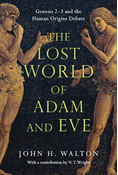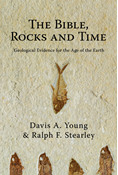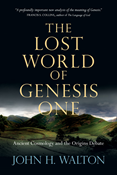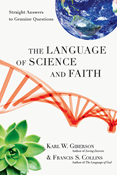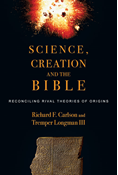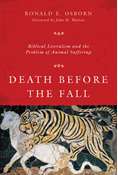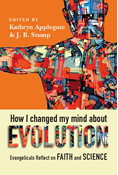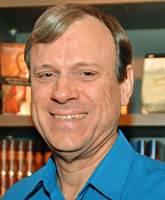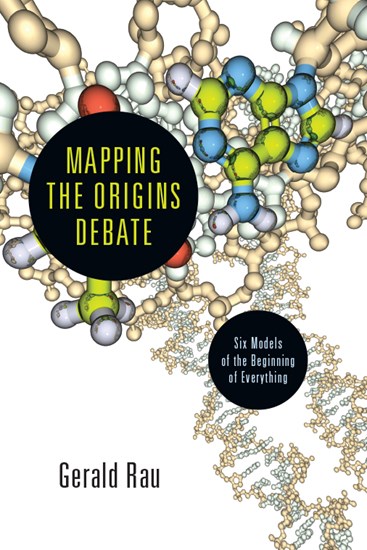
|
Mapping the Origins Debate
ebook
|
- Length: 237 pages
- Dimensions: 0 × 0 in
- Published: November 14, 2012
- Imprint: IVP Academic
- Item Code: 6639
- ISBN: 9780830866397
-
Other Retailers:
Amazon*
*affiliate partner
-
paperback
Midwest Publishing Awards Show Honorable Mention
The debate over evolution and creation has raged for decades and shows no signs of letting up. Many promote one view as the only reasonable solution. But what are the main viewpoints, and just why do they disagree? In the midst of an increasingly intense dispute, Gerald Rau answers the important questions with level-headed clarity and evenhanded analysis.
Rau lays out six models of origins, ranging from naturalistic evolution to young-earth creation. He shows how each model presupposes an underlying philosophy that adherents take on faith. With the sensitivity of a seasoned educator, Rau demonstrates how each model assesses the scientific evidence in relation to four different kinds of origins: the universe, life, species and humans. In an age of specialists, Rau sees the big picture. Mapping the Origins Debate cuts through the cacophony and the complexity to provide a lucid and charitable contribution to the conversation.
"The thoughtful and comprehensive description of the range of positions on origins that is presented would be enough for me to highly recommend this book. Dr. Gerry Rau's exploration of the origins debate is made even more valuable by a helpful description of the nature of science, a careful exploration of the assumptions and associated conclusions of each position, and a fair and objective presentation throughout."
"It's about time a book like this hit the market! No caricatures of 'them,' no hackneyed stereotypes of 'the other side,' this is an honest assessment of where the debate lies. Although an expert himself, Dr. Rau shows his seasoned pedagogical skills and does not lose nonspecialist readers in unnecessary technical jargon. If you've suspected that there are more options than just creationism or philosophical materialism, this book is for you."
"Unlike other multiple-views volumes prevalent across the evangelical scholarly spectrum in which contributors attempt to convince others of their views, this book invites readers to understand the religious and scientific logic at work amid the disputes. Rau maps not only the origins debate but also the diversity of scientific presuppositions and methodologies. Mapping has the potential to reorient the evangelical discussion and set it in a constructive direction."
"Eminently qualified with advanced degrees in genetics and science education from top universities, Dr. Gerald Rau not only aims to present the arguments for each position as neutrally as possible, he actually succeeds where angels, let alone countless other scholars, have feared or failed to tread. His thoughtful Christian voice rings clearly in the midst of an often shrill debate where too many are unwilling to acknowledge how their respective worldviews shape their interpretations of scientific data."
"Mapping the Origins Debate offers readers a helpful map of the confusing and noisy terrain of America's troubled conversation about origins. Readers will appreciate Gerald Rau's calm and reasoned guide to the debate; he provides light in an area where most books offer only heat."
"Gerald Rau has, I believe, done a great service by producing a lucid introduction to the subject by 'mapping' the arguments from all sides, summarising the data in such a way that we can get a handle on what different people believe and why they believe it."
"Written for nonspecialists, the book should appeal to both students and to grown-ups who, like me, daydreamed their way through high-school science courses."
"Rau's book is an indispensable resource in understanding the logic and structure of other models that one may disagree with. It also provides a wealth of resources for further reading and research. It is an original and erudite contribution to the science and theology dialogue. It also serves well to outline several of the philosophical assumptions that function as a mediator between the two. I know of no other text that explores such a vast amount of material dealing specifically with origins in such a tightly knit package. I highly recommend this work to not only philosophers, scientists and theologians but to anyone interested in the debates revolving around origins."
"Both the novice and the seasoned student of the origins debate will find Rau's book to be an indispensable resource."
CONTENTS
Preface
Acknowledgments
1. Worldviews, philosophy and science
1.1 What is eternal?
1.1.1 Worldviews and personal philosophy
1.1.2 How worldviews and personal philosophy affect science
1.2 What is science?
1.2.1 Empirical evidence
1.2.2 Logical inferences
1.2.3 Necessary presuppositions
1.2.4 Is science the only way of knowing?
1.3 What questions need to be addressed?
1.3.1 Four origins
1.3.2 Evaluating the models
2. A spectrum of models
2.1 What is a model?
2.1.1 Hypothesis, theory, law, model
2.1.2 Why terminology is important
2.2 What is the spectrum of opinion?
2.2.1 Ends dominate public opinion
2.2.2 Intermediate positions
2.2.3 Relation to presuppositions
2.3 What are the models?
2.3.1 Overview of the models
2.3.2 Naturalistic evolution (NE)
2.3.3 Non-teleological evolution (NTE)
2.3.4 Planned evolution (PE)
2.3.5 Directed evolution (DE)
2.3.6 Old earth creation (OEC)
2.3.7 Young earth creation (YEC)
2.4 What about Intelligent Design?
2.4.1 An idea and a movement
2.4.2 Relation to the models
3. Origin of the universe
3.1 What is the evidence?
3.1.1 A changing universe
Red shift
Cosmic microwave background radiation
Relative abundance of light elements
Consistency with theory
3.1.2 A fine-tuned universe
Physical constants
Universe conditions
Solar system conditions
3.2 How does each model interpret the evidence?
3.2.1 In the beginning (NTE, PE, DE, OEC)
3.2.2 Apparent beginning (NE)
3.2.3 Apparent age (YEC)
3.3 What difference does it make?
4. Origin of life
4.1 What is the evidence?
4.1.1 Life from non-life
Organic precursors
Random reactions
Protocells
Cells
4.1.2 Information
Nearly universal and ideal code
Independent of carrier
Specified complexity
Irreducible complexity
4.2 How does each model interpret the evidence?
4.2.1 Inevitability (NE, NTE, PE)
4.2.2 Immediate appearance (OEC, YEC)
4.2.3 Purposeful direction (DE)
4.3 What difference does it make?
5. Origin of species
5.1 What is the evidence?
5.1.1 Fossils
Sorting
Dating
Stasis and saltation
Extinctions and explosions
Geographical distribution
5.1.2 Genetics
Selection
Population genetics
Mutation
Homeotic genes
Genome complexity
5.1.3 Similarities
Embryological
Vestigial structures
Non-coding DNA
Gene order
Molecular sequences
Symbiosis
5.2 How does each model interpret the evidence?
5.2.1 Neo-Darwinian synthesis (NE, NTE, PE)
5.2.2 Non-Darwinian evolution (DE)
5.2.3 Creation (OEC, YEC)
5.3 What difference does it make?
6. Origin of humans
6.1 What is the evidence?
6.1.1 Hominoids, hominids, or hominins?
Fossils
Artifacts
6.1.2 Chimps vs. humans
Similarities
Chromosome 2
Molecular clock
6.2 How does each model interpret the evidence?
6.2.1 Sentient animal (NE)
6.2.2 Special animal (NTE, PE)
6.2.3 Special purpose (DE)
6.3.4 Special creation (OEC, YEC)
6.3 What difference does it make?
6.3.1 Theological issues
6.3.2 Personal identity
6.3.3 Social issues
7. What we can learn from each
7.1 What evidence needs an explanation?
7.1.1 Six blind men
7.1.2 Agreeing to disagree
7.2 What contribution has each made?
7.2.1 Contributions of neo-Darwinism
7.2.2 Contributions of non-Darwinian evolution
7.2.3 Contributions of old earth creation and intelligent design
7.2.4 Contributions of young earth creation
7.3 What does each need to address?
7.3.1 Overcoming the odds
7.3.2 Providing a mechanism
7.4 Seeing the big picture
7.4.1 Poles apart
7.4.2 Removing the blinders
8. The definition at the heart of the debate
8.1 Whose definition of science?
8.1.1 The inadequacy of empiricism
8.1.2 Different definitions of science
8.1.3 Presuppositions and the definition of science
8.1.4 The objectivity of science
8.2 The heart of the debate
8.2.1 The battle for America?s youth
8.2.2 Leveling the playing field
8.2.3 What can we conclude?
Epilogue


